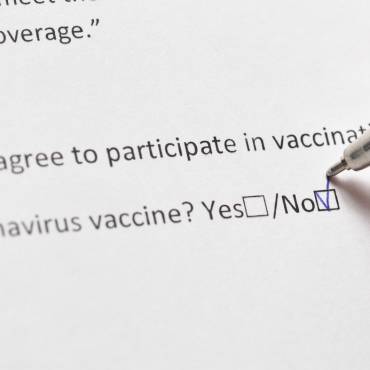Background: Despite widespread vaccination against Bordetella pertussis, disease remains prevalent. Acellular Pertussis vaccine may be less effective or durable than previously believed. Its clinical efficacy has yet to be evaluated in North America. At the epicenter of the largest outbreak in decades, we examined pertussis incidence and vaccine efficacy in a well-defined, vaccinated community. Methods: We reviewed 171 patients with a positive PCR for B. pertussis from March 1 to October 31, 2010 for demographics and vaccination status. Results: We found 132 cases of clinical pertussis in patients age <19, with peak incidence in ages 8-14. Testing rate peaked in infants, but remained nearly constant in other ages. The case rate markedly increased after age 7, peaking at age 12 and appeared to correlate to an increased interval since vaccination. Unvaccinated children accounted for very few cases. Conclusions: The 2010 pertussis outbreak was an excellent natural experiment to assess the American acellular pertussis vaccine. In a well-defined population with excellent ascertainment, minimized selection bias and known vaccination status, acellular boosters appear to be ineffective after 3 years. The sustaining population of the outbreak was fully immunized by national guidelines but more than 2.5 years since their last booster. Acellular pertussis boosters are effective but less durable than previously thought. Vaccine guidelines and pertussis control measures need to be reconsidered.
Source: M. A. Witt – Res. Assistant, P. H. Katz, MD, MPH – Senior Pediatrician, D. J. Witt, MD – Chief, Infectious Diseases;
Kaiser Permanente Med. Ctr., San Rafael, CA. – http://www.abstractsonline.com/Plan/ViewAbstract.aspx?mID=2789&cKey=223c57e0-0217-4327-aa94-9677ed5ea4c4&sKey=4451459e-9f2b-4cb4-af74-27104aa3d756

